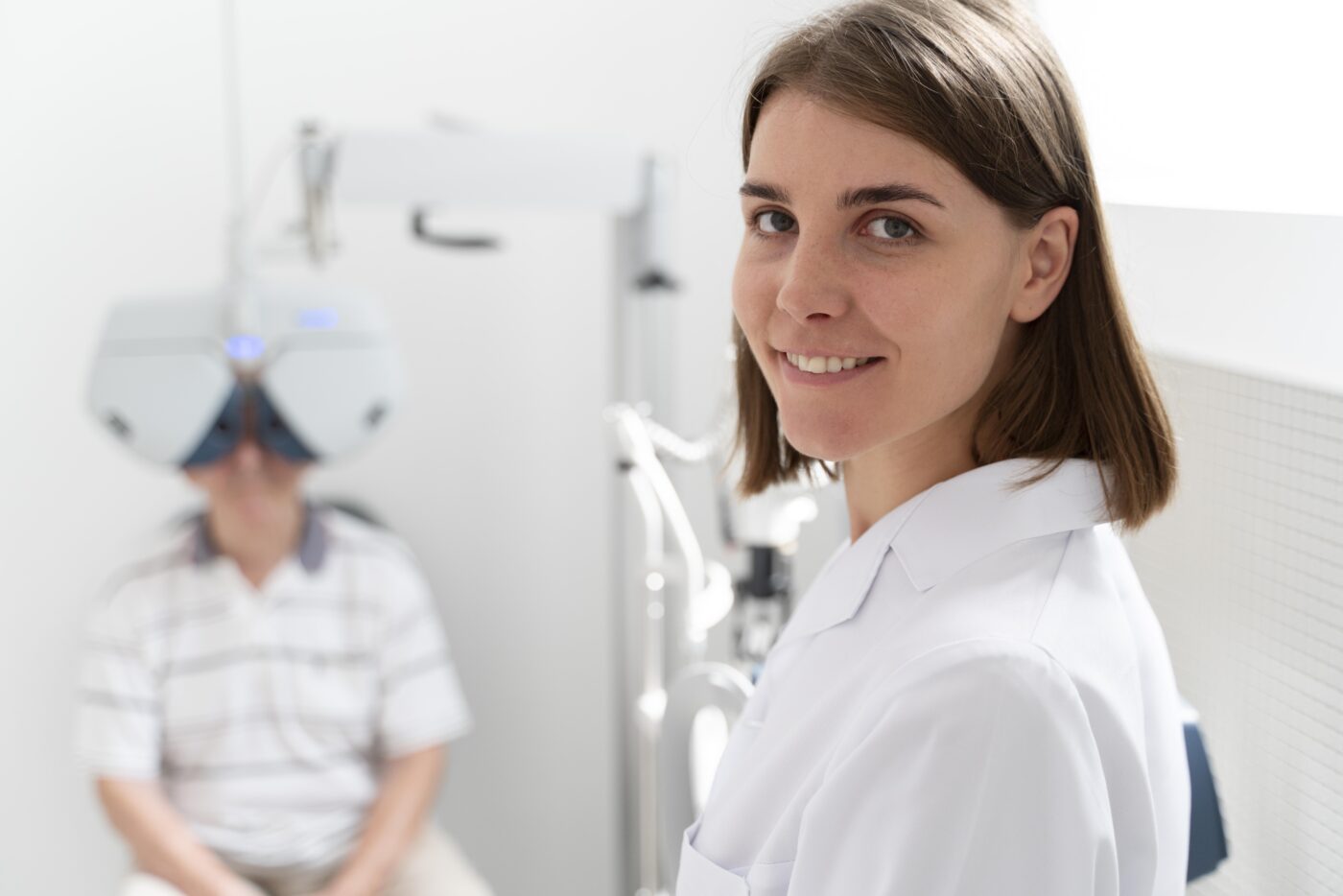LASIK is a well-established and widely popular vision correction procedure that has transformed the lives of millions of people around the world. Despite its proven success and increasing popularity, a persistent misconception lingers: “Why don’t eye doctors get LASIK?” This myth is busted by a study that showed ophthalmologists are significantly more likely to opt for vision correction procedures for themselves and their families. In fact, these medical professionals are five times more likely to choose corrective surgery for their own vision needs. Moreover, over 90% of eye surgeons surveyed recommended these procedures for their immediate relatives.
The Important Factor of LASIK Candidacy
LASIK is not a one-size-fits-all solution for vision correction. It’s a personalized procedure with specific criteria for candidacy. Here’s a breakdown of the key factors that an ophthalmologist considers to determine a patient’s suitability for LASIK:
- Corneal Thickness: The cornea is the clear dome-shaped structure at the front of the eye. LASIK surgery reshapes the cornea to correct refractive errors. A sufficient corneal thickness is crucial for safe and successful LASIK.
- Refractive Error Severity: LASIK is effective in correcting common refractive errors like myopia (nearsightedness), hyperopia (farsightedness), and astigmatism. However, the severity of the refractive error also plays a role in determining candidacy.
- Eye Health: Existing eye conditions like dry eye syndrome, keratoconus (irregular corneal shape), or certain autoimmune diseases may preclude LASIK surgery.
- Age: LASIK is typically recommended for individuals above the age of 18 when their corneal thickness and eye prescription have stabilized.
Eye doctors, like their patients, must undergo a comprehensive evaluation to determine their suitability for vision correction surgery. If they do not meet the criteria, they may not proceed with the surgery, regardless of their professional expertise or desire to eliminate the need for glasses or contact lenses.
Why Some Eye Doctors May Opt Out of LASIK
While LASIK offers numerous advantages, it’s not for everyone. Here are some reasons why some individuals, including eye doctors, might choose not to undergo LASIK:
- Personal Preference: LASIK is an elective procedure. Some people might simply prefer wearing glasses or contact lenses for various reasons, such as cost considerations, the hassle of daily lens care, or a desire to maintain a certain aesthetic.
- Pre-existing Eye Conditions: As mentioned earlier, certain eye conditions can disqualify a person from LASIK candidacy.
- Professional Bias: It is essential to recognize that some eye care professionals earn a substantial part of their income from selling eyeglasses and contact lenses. Although many of these professionals adhere to high ethical standards, this financial incentive might unintentionally shape their views on LASIK surgery.
Eye Doctors and LASIK: Dispelling the Myth
The myth that eye doctors avoid LASIK surgery stems from a misconception about their confidence in the procedure. In reality, many ophthalmologists choose LASIK for themselves, demonstrating their trust in its safety and effectiveness. Here’s why this misconception arises:
Focus on Patient Care
Eye doctors prioritize providing their patients with a variety of vision correction options, including LASIK, glasses, and contact lenses. They may not have undergone LASIK themselves because their current vision correction method works well for them and allows them to effectively perform their duties.
Individual Needs
Just like any other patient, eye doctors have unique vision requirements and preferences. LASIK might not be the most suitable option for everyone, including eye care professionals. Some eye doctors may have naturally good vision or may have a preference for glasses or contact lenses for personal reasons.
If you are considering a vision correction procedure and are unsure about whether it is the right choice for you, the best approach is to consult with a qualified eye surgeon. They will conduct a thorough evaluation, assess your candidacy, and provide personalized recommendations based on your specific vision needs.
Making Informed Decisions about LASIK
The decision for eye doctors to undergo LASIK or any other vision correction surgery is influenced by various factors, including candidacy, vision changes, personal preference, and medical necessity. Understanding these factors can help demystify why some eye doctors might still wear glasses, even though they recommend vision correction procedures to their patients. If you are considering LASIK, we encourage you to consult with a LASIK Vision Institute eye care professional who can guide you through the decision-making process and help determine the best option for your vision needs.

Find a LASIK Surgery Location Near You
We’re located nationwide – it’s easy to find a LASIK Vision Center near you.
About The Author
Dr. T. Christopher McCurry, M.D., is a distinguished LASIK specialist, proudly certified by the American Board of Ophthalmology. With a dedicated focus on refractive surgery, he brings a wealth of experience as a surgeon since 2014. Since 2020, Dr. McCurry has been a pivotal member and the current Chair of the Physician Leadership Council for LasikPlus, LASIK Vision Institute, and TLC Laser Eye Centers. He guides a substantial group of eye doctors and surgeons, showcasing his commitment to advancing the field.
Categories:



